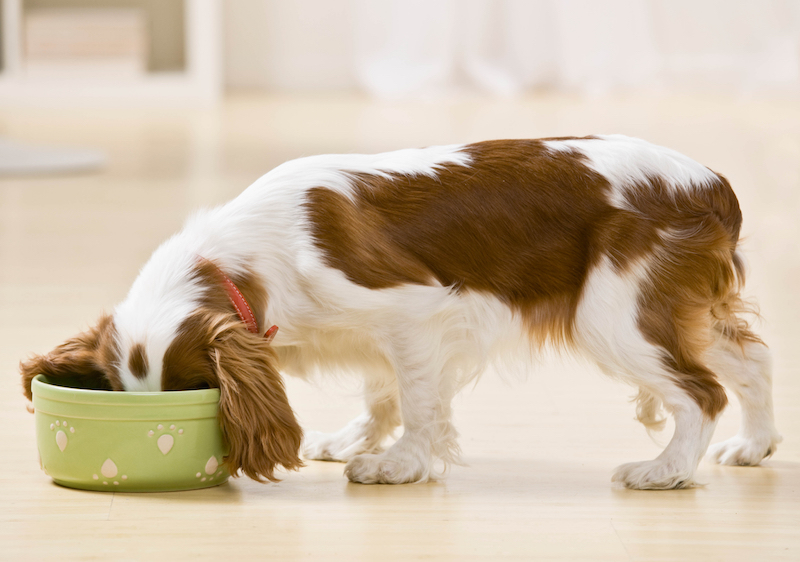If you are new to dog ownership, you may be surprised to learn that dogs, like humans, will get bouts of hiccups, and even though the hiccups may not sound exactly like what you are used to, you can still recognize it as one. Hiccups in dogs are caused by a variety of factors, none of which are directly linked to a dog’s health. There are, however, a few instances where hiccups in dogs can be a sign of ill health.
What Causes Hiccups in Dogs?
Physically, hiccups are the result of a spasmodic diaphragm. This may be caused by a variety of reasons, and can results in a short burst of hiccups or one that lasts for minutes and even hours. As mentioned before, hiccups are typically not a reason to be concerned. The most common reasons of why a dog might develop hiccups include:
- Eating food too quickly (which dogs have a tendency to do)
- Eating spicy food (this mostly happens if they get a hold of table scraps or are fed something off the table by someone who is not paying attention to what is in the food)
- Being under stress can also cause a hiccup reaction.
- If a dog inhales some type of irritant. Due to the sensitivity of the canine olfactory system, exposure to irritants can result in hiccups.
- If the body temperature of your dog drops (hypothermia), it may result in hiccups.
When your dog gets the hiccups, there isn’t much you can do to stop the hiccups, but you can keep your dog busy with something else so that she will not be bothered by the hiccups.
Do note that if your dog or puppy hiccups a lot and regurgitates food, then this might be cause for alarm, and it is advisable to seek veterinary care.
How to Stop the Hiccups?
Generally, dog hiccups will stop without any intervention on your part, but there are certain situations where it may become necessary for you to take action.
The most critical time when it is necessary for a dog owner to intervene, it is when a dog is experiencing hypothermia, which can be fatal if not treated. If a dog’s body temperature has dropped enough to trigger hiccups, it is important to get the dog close to a source of heat. If the dog is wet, she should be dried, and kept close the source of heat and kept there until the hiccups stop, and probably longer.
If the hiccups last for a short period, and occur infrequently, then the best thing to do is either offer your dog some water or massage its chest a bit to help end the hiccups; however, if the bout of hiccups last for a long time or happens frequently, then it is important to see your veterinarian, which will hopefully find the condition which is causing the hiccups. If there are no health issues that may be causing the hiccups, some muscle relaxants may be prescribed, which will help the diaphragm muscle loosen up and reduce the chances of hiccups developing. In highly unusual cases where muscle relaxants do not have the desired effect, the veterinarian may recommend surgical intervention.
The most common reason for hiccups is eating too quickly. To help prevent this type of hiccup, there are specially designed food bowls which hinder the dog’s ability to eat their food too quickly, reducing the chances of the dog developing a hiccup as a result of eating too fast. You can also reduce the chances of your dog getting the hiccups by feeing her smaller portions.

